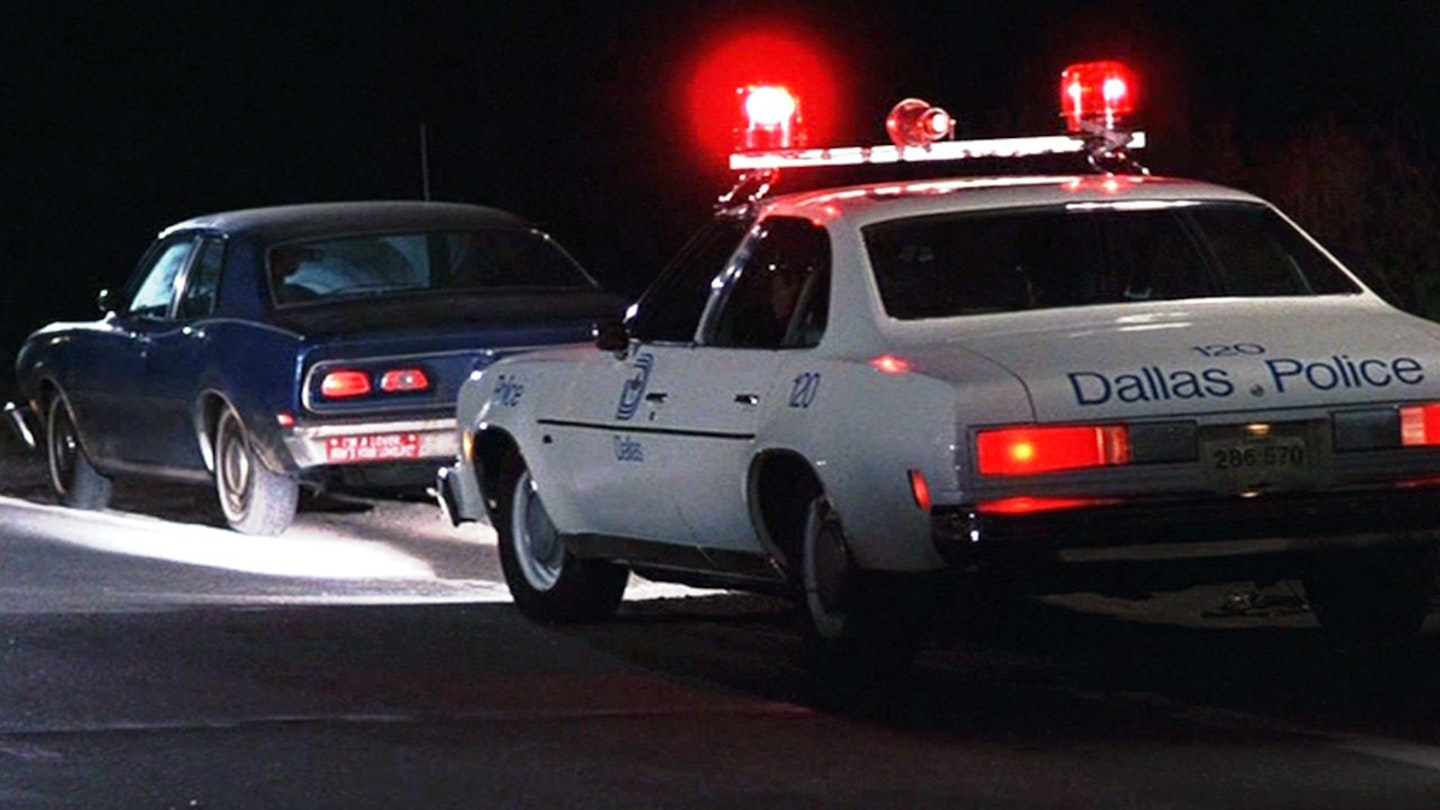Erroll Morris originally intended a documentary about an American eccentric who ends up in this riveting film only by proxy -- Dr James Grigson, a psychiatrist who specialises in ruling that condemned murderers are sociopathic threats who should be sent to the chair. Grigson assesses these individuals by the degree of remorse shown, an approach which falls down when the subject is innocent of any crime, and naturally shows more anger than regret.
The film consists of talking head interviews with many of the principles – excepting the DA who cited ‘the thin blue line’ of police protecting lawful folks from anarchy and the dead cop’s partner who seems to have fouled up at the crime scene – intercut with stylised re-enactments that are as vague and shifting as memories, overlaid with Philip Glass’s hypnotic score.
Amazingly, everyone comes across as reasonable and is forthcoming on film – Harris, jailed for a later murder, seems an all-American boy even to the arresting officer who is only too aware of his crazy streak, while the judge who passed sentence reminisces about his FBI agent Dad’s presence at the Dillinger shooting and seems genuinely satisfied with his conduct.
The woman who did the most to finger a man she was unable to pick out of a line-up consoles herself with the fact that Adams was definitely identified by another witness, David Harris. There are hints that we aren’t getting the whole story: the incendiary racial politics of the area are touched on but don’t come into focus and everyone speaks in a roundabout way to avoid definite accusations (for legal reasons?). An important film.
